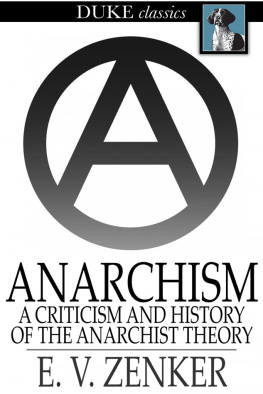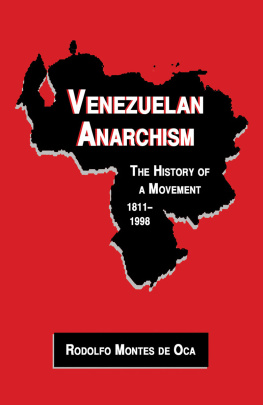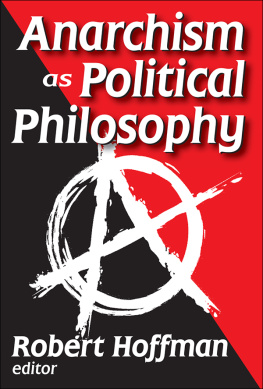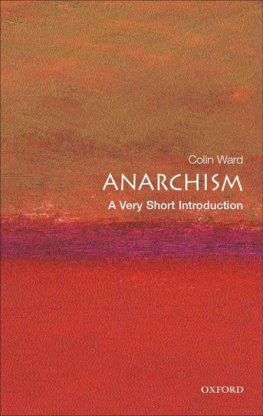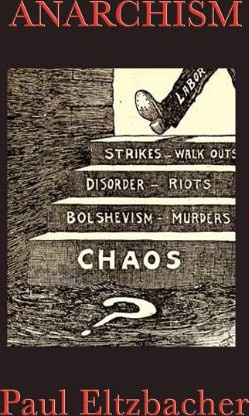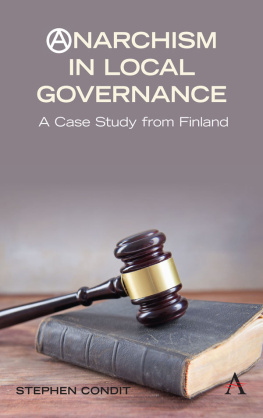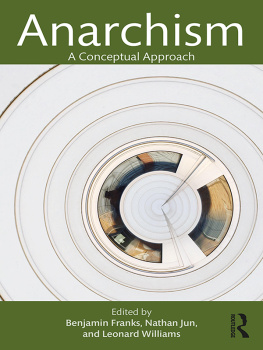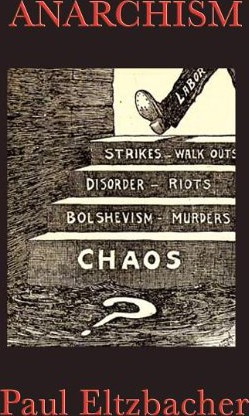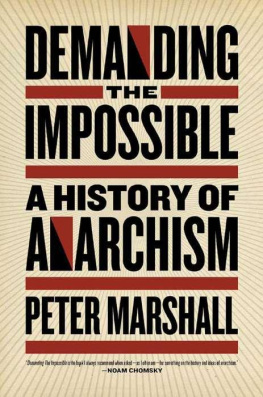ANARCHISM
A CRITICISM AND HISTORY OF THE ANARCHIST THEORY
* * *
E. V. ZENKER
*
Anarchism
A Criticism and History of the Anarchist Theory
First published in 1897
ISBN 978-1-62012-813-8
Duke Classics
2012 Duke Classics and its licensors. All rights reserved.
While every effort has been used to ensure the accuracy and reliability of the information contained in this edition, Duke Classics does not assume liability or responsibility for any errors or omissions in this book. Duke Classics does not accept responsibility for loss suffered as a result of reliance upon the accuracy or currency of information contained in this book.
Contents
*
PREFACE
*
On the day of the bomb outrage in the French Parliament I gave animpromptu discourse upon Anarchism to an intelligent audience anxiousto know more about it, touching upon its intellectual ancestry, itsdoctrines, propaganda, the lines of demarcation that separate it fromSocialism and Radicalism, and so forth. The impression which myexplanations of it made upon my audience was at the same timeflattering and yet painful to me. I felt almost ashamed that I hadtold these men, who represented the pick of the middle-class politicalelectorate, something entirely new to them in speaking of matterswhich, considering their reality and the importance of the question,ought to be familiar to every citizen. Having thus had my attentiondrawn to this lacuna in the public mind, I was induced to make asurvey of the most diverse circles of the political and Socialistworld, both of readers and writers, and the result was the resolve toextend my previous studies of Anarchism (which had not extended muchbeyond the earliest theorists), and to develop my lecture into a book.This book I now present to my readers.
The accomplishment of my resolve has been far from easy. What littleliterature exists upon the subject of Anarchism is almost exclusivelyhostile to it, which is a great drawback for one who is seeking notthe objects of a partisan, but simply and solely the truth. One hadconstantly to gaze, so to speak, through a forest of prejudices anderrors in order to discover the truth like a little spot of blue skyabove. In this respect I found it mattered little whether I applied tothe press, or to the so-called scientific Socialists, or to fluentpamphleteers.
"In vielen Worten wenig Klarheit,
Ein Fuenkchen Witz und keine Wahrheit."
Laveleye, for instance, does not even know of Proudhon; for himBakunin is the only representative of Anarchism and the mostcharacteristic; Socialism, Nihilism, and Anarchism mingle together inwild confusion in the mind of this social historian. Garin, who wrotea big book, entitled The Anarchists, is not acquainted with a singleAnarchist author, except some youthful writings of Proudhon's and afew agitationist placards and manifestoes of the modern period. Theresult of this ignorance is that he identifies Anarchism completelywith Collectivism, and carries his ridiculous ignorance so far as toconnect the former Austrian minister Schaeffle, who was then the chiefadviser of Count Hohenwart, in some way or other with the Anarchists.Professor Enrico Ferri, again, exposes his complete ignorance of thequestion at issue sufficiently by branding Herbert Spencer as anAnarchist. In fact, the only work that can be called scientificallyuseful is the short article on "Anarchism" in the Cyclopaedia ofPolitical Science, from the pen of Professor George Adler. Allpamphlets, articles, and essays which have since appeared on the samesubject are, conveniently but uncritically, founded upon this shortbut excellent essay of Adler's. Since the extraordinary danger ofAnarchist doctrines is firmly fixed as a dogma in the minds of thevast majority of mankind, it is apparently quite unnecessary to obtainany information about its real character in order to pronounce adecided, and often a decisive, judgment upon it. And so almost all whohave hitherto written upon or against Anarchism, with a few very rareexceptions, have probably never read an Anarchist publication, evencursorily, but have contented themselves with certain traditionalcatchwords.
As a contrast to this, it was necessary, for the purposes of acritical work upon Anarchism, to go right back to its sources and tothe writings of those who represented it. But here I found a furtherdifficulty, which could not always be overcome. Where was I to getthese writings? Our great public libraries, whose pride it is topossess the most complete collections possible of all the texts ofHerodotus or Sophocles, have of course thought it beneath theirdignity to place on their shelves the works of Anarchist doctrinaires,or even to collect the pamphlet literature for or againstAnarchismproductions which certainly cannot take a very high rankfrom the point of view either of literature or of fact. Theconsequence of this foresight on the part of our librarians is that,to-day, anyone who inquires into the development of the socialquestion in these great libraries devoted to science and public studyhas nothing to find, and therefore nothing to seek. I have thus beencompelled to procure the materials I wanted partly through thekindness of friends and acquaintances, and partly by purchase ofbooksoften at considerable expense,but always by roundabout meansand with great difficulty. And here I should like specially toemphasise the fact that it was the literary representatives ofAnarchism themselves who, although I never concealed my hostility toAnarchism, placed their writings at my disposal in the kindest andmost liberal manner; and for this I hereby beg to offer them myheartiest thanks, and most of all Professor Elisee Reclus, ofBrussels.
But if I thus enter into details of the difficulties which met me inwriting the present book, it is not with the object of surroundingmyself with the halo of a pioneer. I only wish to lay my hand on asore which has no doubt troubled other authors also; and, at the sametime, to explain to my critics the reason why there are still so manylacunae in this work. I have, for instance, been quite unable toprocure any book or essay by Tucker, or a copy of his journalLiberty, although several booksellers did their best to help me, andalthough I applied personally to Mr. Tucker at Boston. It was all invain. Ut aliquid fecisse videatur, I ordered from Chicago M. J.Schaack's book, Anarchy and Anarchists, a History of the Red Terrorand the Social Revolution in America and Europe: Communism, Socialism,and Nihilism, in Doctrine and in Deed. After waiting four months, andrepeatedly urging things on, I at last received it, and soon perceivedthat I had merely bought a pretty picture book for my library for myfive dollars. The book contains, in spite of its grandiloquent title,its six hundred and ninety-eight large octavo pages, and its "numerousillustrations from authentic photographs and from original drawings,"not a single word about the doctrine of Anarchism in general, orAmerican Anarchism in particular. The author, a police official, takesup a standpoint which is certainly quite explicable in one of hisposition, but which is hardly suitable for a social historian. To him"all Socialists are Anarchists as a first step, although allAnarchists are not precisely Socialists" (see page 22),which iscertainly praiseworthy moderation in a police officer. He callsFerdinand Lassalle "the father of German Anarchism as it existsto-day" (page 23); on the other hand he has no knowledge of Tucker (ofBoston), the most prominent exponent of theoretical Anarchism inAmerica. This, then, was the literature which was at my disposal.

